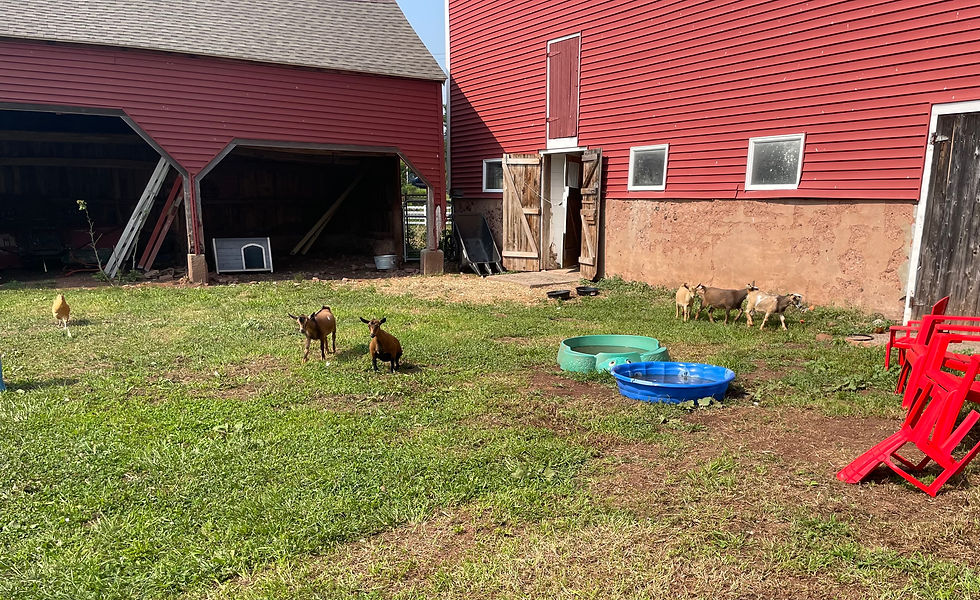A Funny Farm Hosts "Oreo" Cows
- Jill R. Kelly

- Aug 6, 2025
- 2 min read
Updated: Aug 11, 2025

The tranquil landscape of barns and meadows that greets drivers at the intersection of Flanders Road and Flanders Street now contains a surprise: three rare cattle whose striking coloration – white belt on a black coat – brings to mind the famous cookie.
The cows belong to a breed known as Belted Galloway. They are the temporary guests of Jessica and Robbie Knapp, who run Knapp Farm. Their owner, Dave Carbone, also lives in town – Carbone’s children chose the names for the two adult cows, Patina and Ciccoletta. (The calf is named Gordy.) Carbone needed a place to house the animals while their field was being reseeded. For that he turned to Robbie, a fellow officer in the Southington Police Department. When asked how they ended up raising Belted Galloways, Robbie responded, "my coworker just dropped them off one day."

The trio of cows join a rapidly expanding collection of animals. Jessica and Robbie recently moved back to Southington to live on the farm established by Jessica's grandparents, Jack and Diane Putnam, in 1961. The Putnams purchased the five-acre property from the Olson family, who still own the land across the street. Over the years the Putnam’s land was often used to graze horses. Jessica and Robbie have bigger ambitions: in addition to the cows, they take care of four ducks, five baby goats, 75 chickens, and a vegetable garden, and plan to expand the garden next year and add pigs.

Jessica, a real estate broker, is self-deprecating when she describes her farming expertise: "This is a funny farm and I'm a funny farmer!" She says her children have taken to calling the Belted Galloways "Oreo cows." Even though the cattle are just visiting, the Knapps hope they might have one of their own someday: Patina, the largest, is pregnant, and is expecting a baby in February or March of next year.
According to the Livestock Conservancy, Belted Galloway cattle were originally bred in Scotland in the 1700s and imported to the United States in the 1850s. They are known for their warm winter fur, which enables them to stay outdoors in cold weather, and for their efficient foraging ability. They are relatively rare, with fewer than 1500 individuals in the whole US. The Livestock Conservancy lists Belted Galloway as a priority species for conservation, but describes the species as recovering.
Belted Galloway are often raised for meat – but don't worry about Patina, Ciccoletta and Gordy, Jessica says: "They are definitely pets.”






